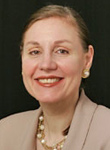

To "tell the whole truth and nothing but the truth" is the maxim guiding legal testimony. But what if the witness recalls something that didn't really happen? Memory is notoriously fickle and can be influenced by many factors, including how questions are asked. We often remember general impressions but not exact details of an event and draw on that impression to fill in the gaps, sometimes creating memories we never experienced.
Now Cornell researchers have found a way to distinguish true and false memories using methods that may ultimately help in the courtroom. Current forensic interviews do not assess the specific sensory qualities of witnesses' memories. According to the new study, published in Applied Cognitive Psychology (24:8), doing so could help sort fact from fiction.
The study shows that when a person remembers something that actually happened, they have a richer memory experience. They recall the details more easily, more vividly and with greater confidence than when they remember something that didn't occur.
“The study breaks new ground in applying research on false memory to forensic contexts,” said Valerie Reyna, professor of human development, who conducted the research with Charles Brainerd, Cornell professor of human development and of law, and first author Tammy Marche, University of Saskatchewan, Canada.
The researchers modified a widely used forensic memory test that measures how much individuals are influenced by misinformation and used it in combination with another memory test. For the study, 81 undergraduates listened to a story about an armed robbery and then answered questions about it. Many of the questions were misleading, asking about something that was not in the story.
The students were then asked to review each of their answers and rate the quality of their memory (i.e., how confident they were in their response, whether it was associated with sound, the strength of their feelings, whether it brought up associated story details, and how difficult it was to remember).
The researchers found reliable differences between how students rated their memory of the real story details versus false ones. When students claimed to have heard something that wasn't mentioned in the story, they reported a harder time remembering and less confidence in their answer compared with items actually in the story. When falsely recalling unmentioned details, they also reported less association with sound and with other facts in the story.
The researchers also found that when participants were forced to choose between two false options, they were more likely to be misled and remember story details incorrectly than when answering questions in a yes-no format.
"What is unique about the forensic context is the potential for memory to be corrupted during the fact-finding process itself," said Brainerd. The "Gudjonsson" test, used in this study, assesses the degree to which this corruption is possible for an individual. Applied in police interviewing and expert testimony in court cases, this test is used to assess witnesses' susceptibility to false memories (and thus whether they are likely to be inaccurate witnesses).
"Our results have real implications for the way witnesses are questioned by investigators and how to preserve accurate memories," said Reyna. "We hope these findings will lead the way to developing diagnostic methods that can be used to determine the truth of witnesses' memory reports."
This study was supported in part by the National Science Foundation and a St. Thomas More College research grant.

